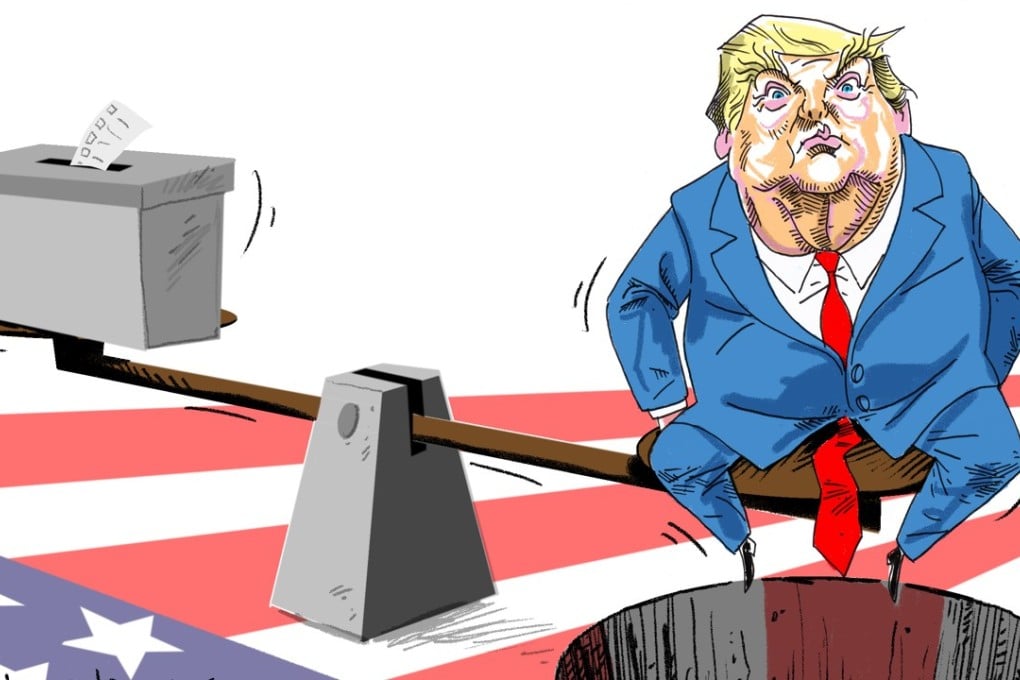Opinion | The US midterm elections will not only shake up Trump’s backyard but also have implications for Asia
- John Kotch says the outcome of the elections will determine whether Trump’s ‘America first’ foreign policy and trade war will continue unabated

On November 6, Americans will vote for a new Congress – all 435 members of the House of Representatives and roughly one-third or 35 senators. In addition, 36 governorships and most state legislatures will be up for grabs under the two-tier US federal/state political system. Overshadowing all these races will be US President Donald Trump, albeit in name only – he’s not even on the ballot.
In reality, midterm elections derive their importance as the first opportunity for the electorate to pass judgment on the president elected two years ago as well as act as a bridge between the preceding and upcoming presidential election two years hence in 2020. Like a midterm exam to measure how well students are absorbing course material, they measure voter satisfaction with the incumbent, a referendum of sorts on his performance to date.
However, having failed to predict a Trump upset in 2016, few if any commentators are prognosticating this time around, other than to note that Democrats are more likely than not to take control of the House while the Senate is more likely to remain in Republican hands. This is typical of the midterms, in which the president’s party loses seats in the House, especially when his poll numbers are as low as they are now, albeit in line with recent presidents, including Barack Obama in 2014 and George W. Bush in 2006.
The big question in 2018 is whether Democrats can wrest control of the House from Republicans in a so-called blue wave, aiming for a double-digit margin to overcome a current 23-seat deficit. Polling to date gives them a better-than-even chance of doing so.

